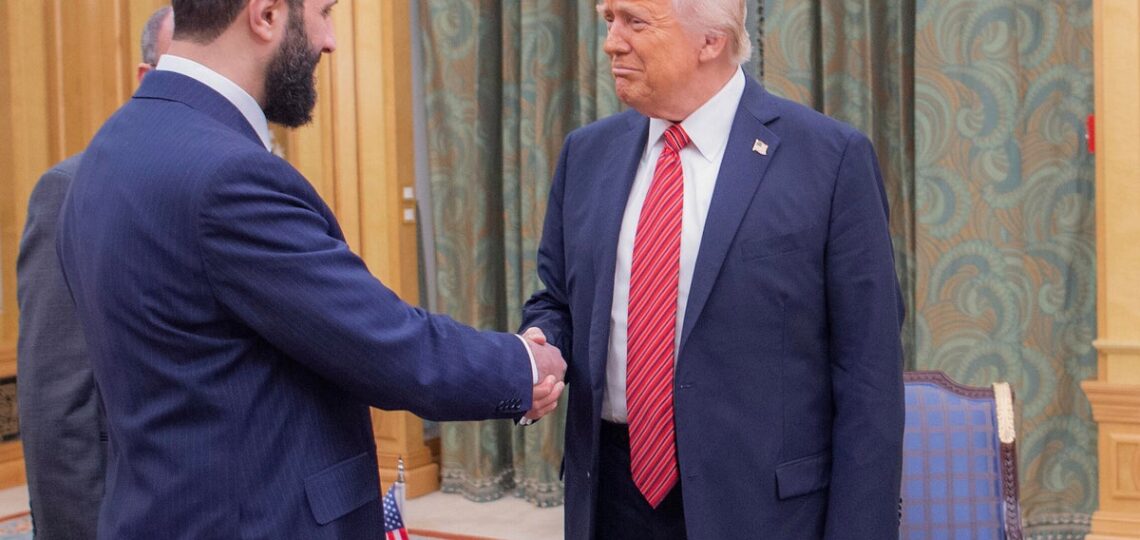
Trump’s decision to lift Syria sanctions took Treasury staff by surprise
Washington — For the leaders of Syria’s transitional government, President Trump’s announcement earlier this week that the U.S. would lift all sanctions on the country came as a relief after months of intense lobbying for a reprieve.
“I will be ordering the cessation of sanctions against Syria in order to give them a chance at greatness,” Mr. Trump said at an investment forum in Saudi Arabia’s capital, Riyadh, on Tuesday.
But inside the Treasury Department, which administers and enforces sanctions policy, the announcement came as a surprise to senior officials, sources tell CBS News.
The announcement was also short on specifics, including which measures would be rolled back, and at what pace. The lack of clarity sent senior officials at Treasury scrambling to understand what he meant.
Now, there are discussions inside Treasury to determine the speed and extent to which the decades-old sanctions — which restrict economic activity within Syria and its dealings with other countries — can be rolled back.
At the time of publication, a Treasury spokesperson had not responded to a request for comment.
Secretary of State Marco Rubio said Thursday at a meeting of NATO foreign ministers that he was with Mr. Trump when he decided to include the announcement to lift all sanctions on Syria in his speech in Riyadh. Rubio did not say when the president made the decision.
“This is something that had been discussed, worked on, options considered for many weeks leading up to this announcement and that we are going to be implementing what the president has announced as an administration,” State Department principal deputy spokesperson Tommy Pigott said in a briefing Thursday.
Some work was underway at Treasury before the president’s announcement for an incremental lifting of sanctions, some of which date back to 1979.
Indeed, Syria’s transitional government — led by interim President Ahmed al-Sharaa — has pushed the Trump administration for sanctions relief in recent months.
The new government has blamed sanctions — which include penalties on third countries for doing business in Syria — for its inability to pay civil service salaries, reconstruct sizable chunks of war-ravaged cities and rebuild a health-care system decimated by war.
Turkey and Saudi Arabia, two U.S. allies in the region, have backed normalizing relations with Syria’s new government. Both countries have provided aid to Syria, and Saudi Arabia has offered to pay off some of the country’s debts, two activities that could run afoul of sanctions. The Saudis see an opportunity to win the new Syrian government over to their side, after decades of the country being allied with their top regional rival, Iran, while the Assad regime was in power.
Relief was a key topic in meetings between Syrian officials, including its Central Bank Governor Abdelkadir Husrieh, and other world leaders at the IMF and World Bank Spring Meetings last month in Washington.
Some of the most punitive measures were imposed over the last two decades on the former regime of Bashar al-Assad for human rights abuses and support for groups designated by the U.S. as terrorist organizations. The Assad government collapsed in December as rebel groups, including fighters led by Sharaa, swept into Damascus, ending a 13-year-long civil war.
In 2003, then-President George W. Bush signed the Syria Accountability Act into law, which centered on Syria’s support for U.S.designated terror groups like Hezbollah, Syria’s military presence in Lebanon, alleged development of weapons of mass destruction, oil smuggling and backing of armed groups in Iraq after the U.S.-led invasion.
In 2011, the Obama administration led an international effort to isolate Syria — culminating in multiple rounds of sanctions — as Assad’s army fought a bloody civil war against rebel forces that led to half a million dead Syrians.
Another package of sanctions were imposed in 2019 as part of the Caesar Syria Civilian Protection Act, also known as the “Caesar Act” which Mr. Trump signed into law. The bill imposed stiff sanctions on Assad’s government and companies or governments that worked with it, further crippling Syria’s already isolated economy.
Rubio indicated in his remarks in Turkey that relief may come in the form of waivers that give permission to do business in Syria without facing penalties for evading sanctions, which the administration can issue under authorities in the “Caesar Act.”
“I think we want to start with the initial waiver, which will allow foreign partners who wanted to flow in aid to begin to do so without running the risk of sanctions,” Rubio said. He also suggested that the Trump Administration may be in a position “soon” to ask lawmakers to permanently repeal some sanctions.